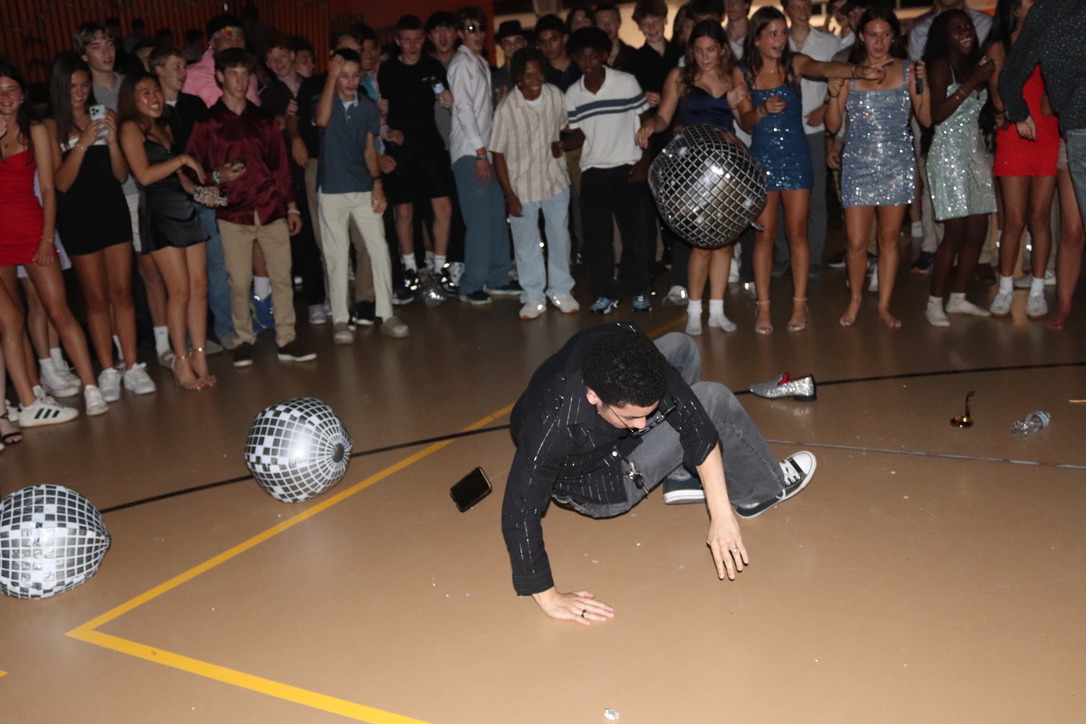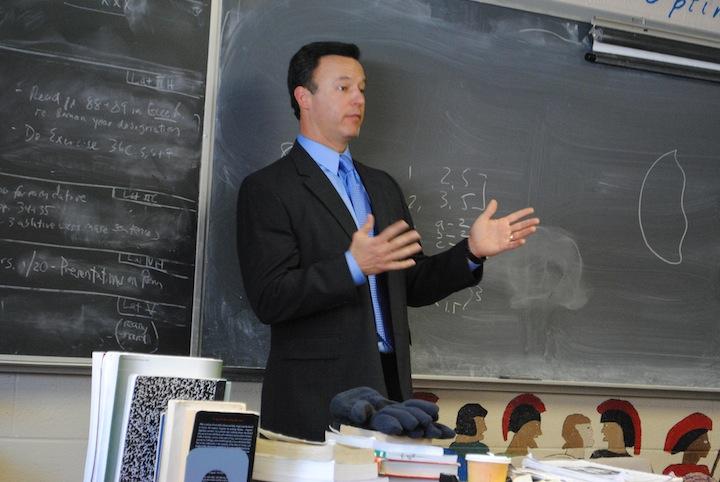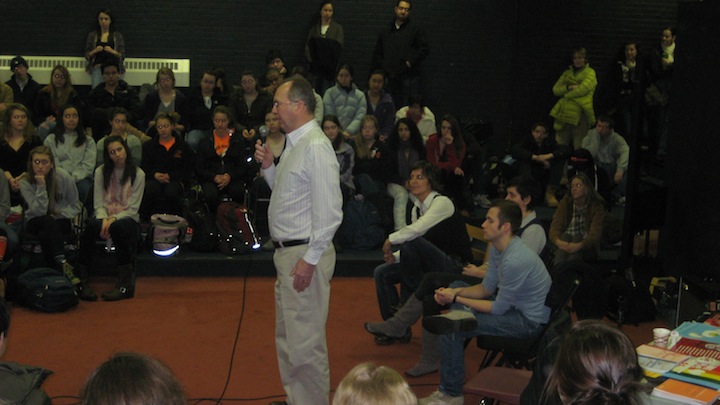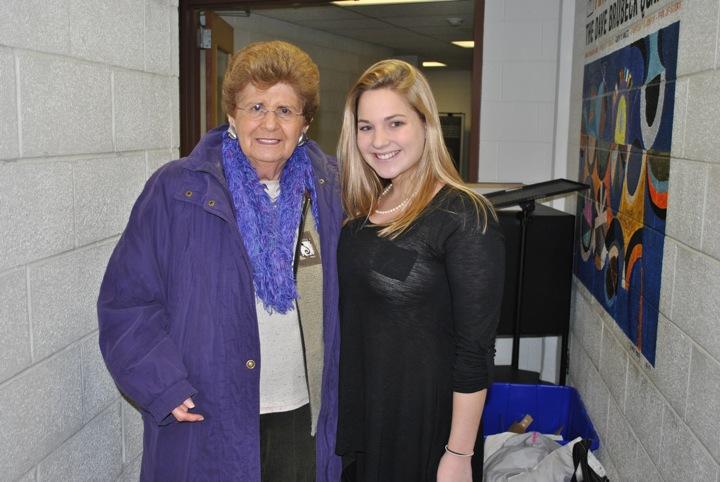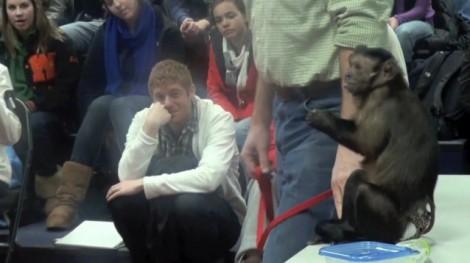
Despite the light atmosphere, the purpose of this visit was to educate students. The furry faces that captivated students didn’t belong to simple pets. Helping Hands trains medical monkeys which act as trained companions and nursemaids for their physically impaired owners. They can take food from the refrigerator, fetch dropped items, and even microwave their owner’s meals.
Brad Keyes, who currently fosters three monkeys who have not yet been placed with a recipient, was on hand to answer questions about the monkeys. Having a monkey is no easy thing. “They don’t have a sense of being messy…of putting things back,” he said.
However, Keyes believes the benefits far outweigh the downsides. “We all take mobility for granted until it’s not there,” he said. The monkey bring mobility back to their owners.
Keyes said the factor limiting the number of people Helping Hands serves is not the number of monkeys they have. “We have enough [trained] monkeys but we don’t have enough money,” he said.
One of the reasons that Helping Hands needs money is that monkeys, and guidance in their care, are provided free of charge. If an owner is temporarily unable to take care of his or her monkey, Helping Hands will even fly across the country to babysit.
Helping Hands raises and trains capuchins from the Southwick Zoo. According to Keyes, the monkeys must be around ten years old before they can be trained, and they need around two years of training before they can be placed with an owner.
To fundraise, Helping Hands holds events like their presentation during Wayland’s Winter Week, applies for grants, and is helped by foundations. However, according to Director of Development and Communication Andrea Rothfelder, their money is raised mostly its individual donations.
To learn more about Helping Hands and the helper monkeys, go to monkeyhelpers.org. According to Keyes, Helping Hands is always looking for foster families, and is happy to accept donations.


























